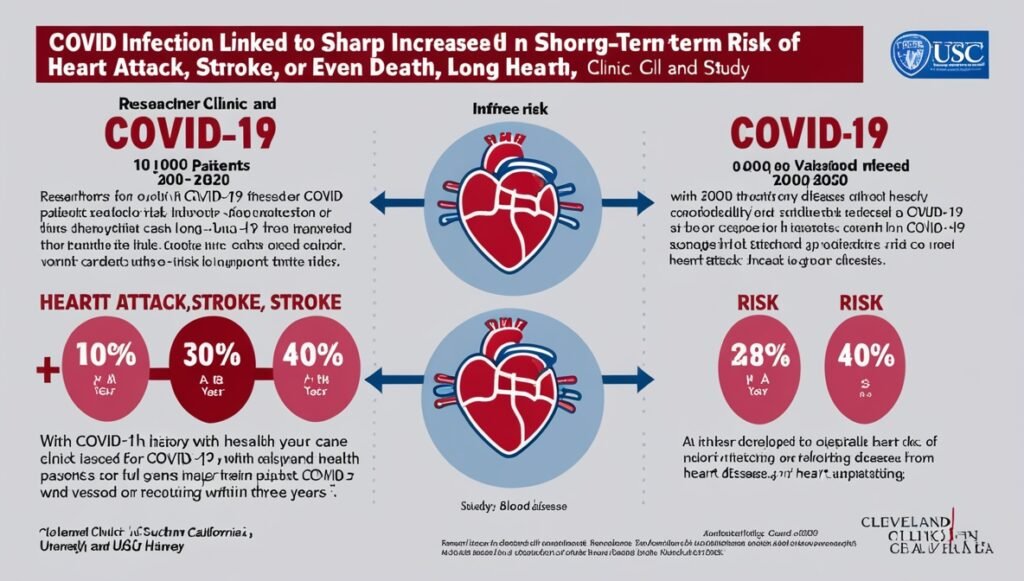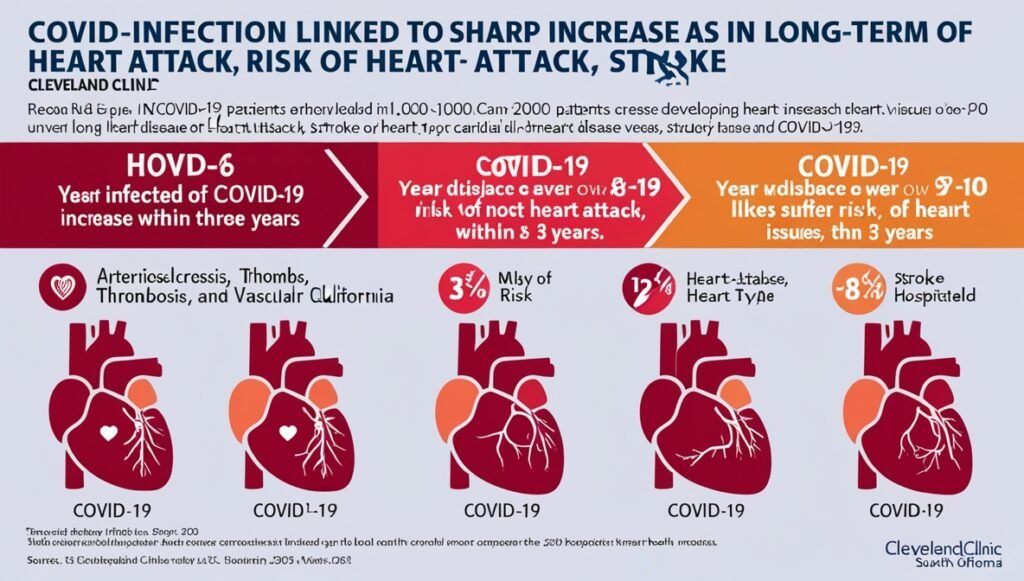A recent study from the Cleveland Clinic and the University of Southern California reveals that having COVID-19 can double your risk of heart attack, stroke, or even death in the long run. Researchers followed the health of 10,000 COVID-19 patients from 2020 and compared it with about 200,000 who were not infected, tracking their health over three years.

Published in the Arteriosclerosis, Thrombosis, and Vascular Biology Journal, the study highlighted that those with a COVID-19 history were twice as likely to suffer major heart issues within three years compared to those who never had the virus. The risk soared even higher for those who were hospitalized due to COVID-19, with chances of developing heart disease quadrupling.
These risks persisted despite factoring in other conditions like diabetes or pre-existing heart disease. The study’s co-author, Dr. Stanley Hazen, emphasized that these findings point to significant global health concerns, given the widespread incidence of COVID-19.

Blood type also played a role in the increased risk. Patients with A, B, or AB blood types faced a higher risk of major cardiac events compared to those with type O blood. This suggests a possible genetic interaction that merits further investigation.
COVID-19 impacts the heart in several ways. The virus can cause inflammation, increasing the likelihood of blood clots, which might lead to heart attacks or strokes. It has also been linked to arrhythmias and myocarditis, which can damage heart muscles and lead to cardiac arrest.
The post-pandemic period has seen a concerning rise in heart-related deaths, reversing a decade-long decline. From 2020 to 2022, there was a 9.3% increase in cardiovascular deaths, contrasting with the 8.9% decrease from 2010 to 2019.

Dr. Hazen underlined that while COVID-19 is primarily a respiratory infection, its broader health implications mean that a history of COVID-19 should be a key consideration in heart disease prevention strategies.








Leave a Reply